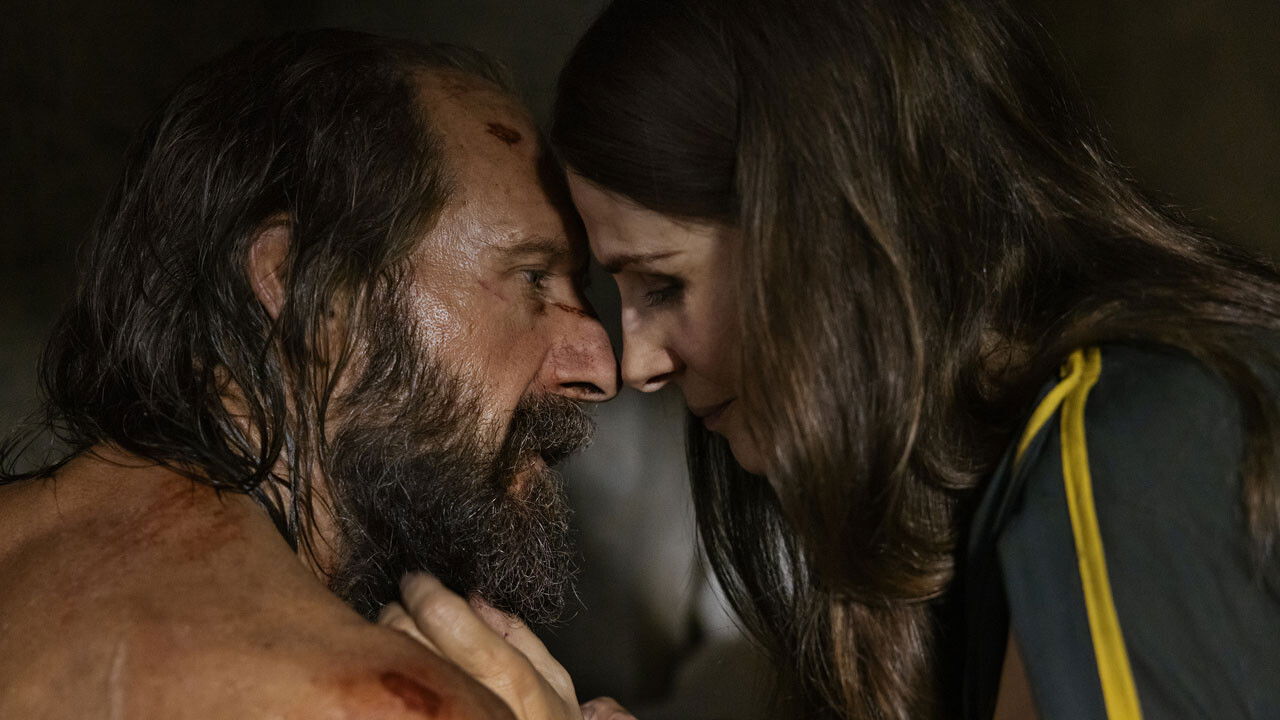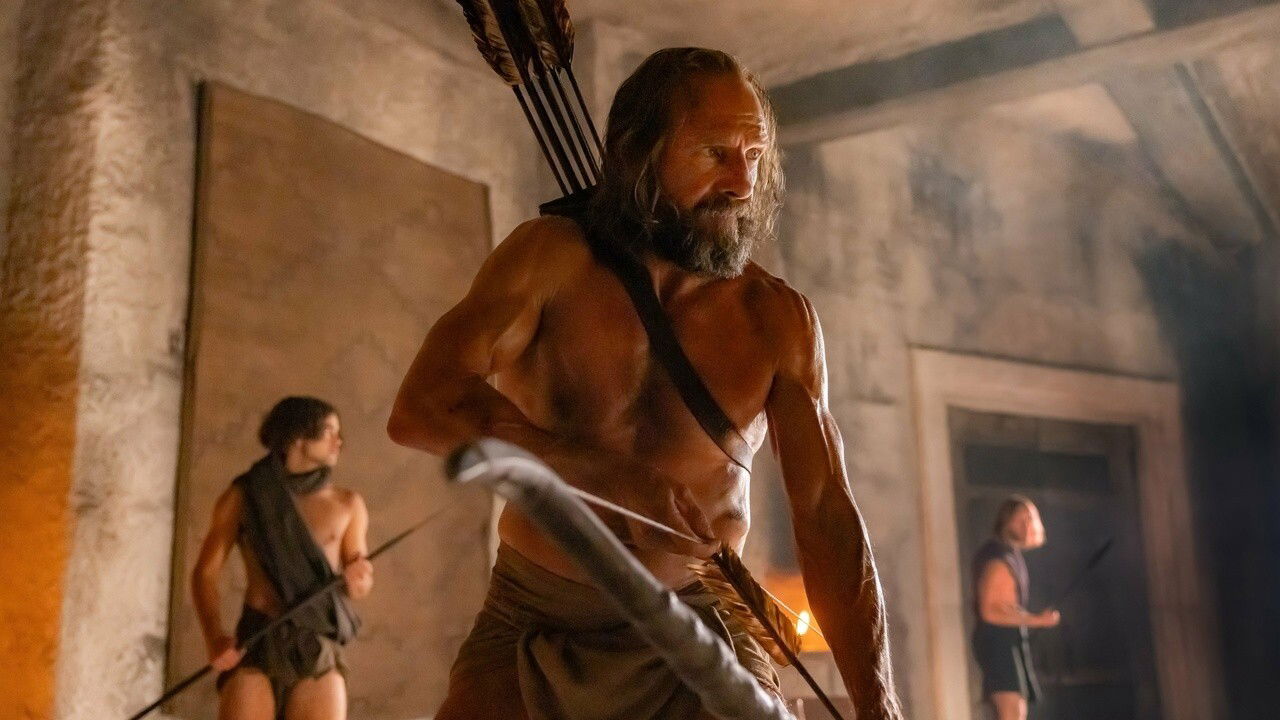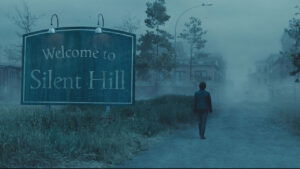The Return isn’t the sword-swinging epic you might expect from a Homeric adaptation—instead, it’s a slow-burning, introspective meditation on war, loss, and coming home.
Having spent Saturday afternoons as a child watching vintage films about Greek and Roman myths and legends from the golden age of cinema, I was eager to see what The Return would do differently. Directed by Uberto Pasolini, this ambitious retelling of Homer’s epic The Odyssey premiered at TIFF 2024. It reunites Ralph Fiennes and Juliette Binoche, who last starred together in The English Patient, for a sombre and deeply introspective take on this timeless story, and it is an experience, to say the least.
Fiennes stars as Odysseus, returning after a 20-year absence from the kingdom of Ithaca following the struggles and horrors of the Trojan War. Binoche plays his wife, Queen Penelope, who has been fending off unruly suitors attempting to take over the kingdom while they ransack the island nation. The film focuses on the latter part of Homer’s poem, delving into the psychological impact of war and the challenges of the journey home.
I will be upfront: The Return is a slow and methodical film that takes the time to explore its characters’ struggles. This is not a film if you want mindless sword-and-sandal action or to see a new, more violent take on a classic. The Return is a story that gives Ralph Fiennes the stage to show his acting chops, which he does with style throughout. Also, Ralph Fiennes’ fitness level in this film puts many actors half his age to shame.
“The Return is a slow and methodical film that takes the time to explore its characters’ struggles.”
The Return is a drama that heavily relies on the performances of its lead actors, allowing them ample time to showcase how they can stand alongside some of cinema’s greats. Fiennes and Binoche offer subdued, introspective portrayals of Odysseus and Penelope, conveying volumes through their gazes and the silences between their words. It is a spectacle to watch unfold, captured in striking detail over its nearly two-hour runtime.
While visually captivating, the pacing may not appeal to everyone. The film takes its time before the long-anticipated reunion of the couple. Viewers will need to navigate a series of monologues, plots, schemes and stories of past adventures before the main action begins. Like many stories of the ancient world told on screen, it’s more about the journey than the destination. The Return dwells on its journey, perhaps a bit too much.

Visually, The Return is incredibly striking. Pasolini’s adaptation paints a picture of a kingdom in ruin, affected by a distant war that has left a void and a growing sickness that can only be cured by more violence. The film’s minimalist approach, reminiscent of Joel Coen’s The Tragedy of Macbeth (A fantastic film for anyone wanting to see a new take on a classic story), allows the characters and their internal struggles to take center stage. It is also amazing how they managed to capture a look that is reminiscent of films like Ben Hur or Spartacus, even with the costuming and set design. From minute one, the sense of classical stories was imbued throughout, sending me back on an interesting and shocking nostalgia trip.
I mentioned the look of the film captures the golden era of Holywood in look, but that is not to say anything looks cheap within this production. The Return boasts stunning cinematography that captures the raw beauty of its setting and universe. Fiennes spends much of the film in a simple loincloth—and sometimes in nothing at all—while Penelope’s surroundings are equally pared back, setting the world of this film as one of strife and struggle. The film’s visual austerity serves to heighten the emotional intensity of the performances, even if it may be a bit too minimal for people who expect a lavish production when walking into a film of this nature.
“The Return dwells on its journey, perhaps a bit too much.”
Fiennes and Binoche, both seasoned actors, bring a sense of gravitas to their roles. Nearly three decades after The English Patient, their reunion is a testament to their enduring chemistry and ability to convey complex emotions with subtlety and grace. Although they only share the screen in the final act of the film, their connection is immediately palpable. It’s entirely believable that these characters have not seen each other in over two decades—the mix of resentment and love simmering just beneath the surface is undeniable in every frame.
Despite everything The Return does right, it ultimately misses the mark for me, even though each element is expertly crafted. The film’s 116-minute runtime feels longer than necessary, especially for viewers hoping for a more action-packed retelling of The Odyssey. Pasolini’s focus on character development and the psychological impact of war may not appeal to everyone. While the film delivers a poignant message, it tends to overplay its hand, shifting from an introspective narrative to one that feels self-indulgent.
The Return is an ambitious and thought-provoking film that offers a fresh perspective on a timeless story. While it may not be perfect, it highlights its cast’s immense talent and its director’s vision. Though it didn’t hit as hard as I had hoped, for those willing to embrace its slower pace and introspective nature, The Return delivers a poignant exploration of the human cost of war and the challenges of returning home after such trauma. It’s a commendable effort that, despite its flaws, leaves a lasting impression.
Check out more of CGMagazine’s TIFF 2024 coverage here throughout the festival.





